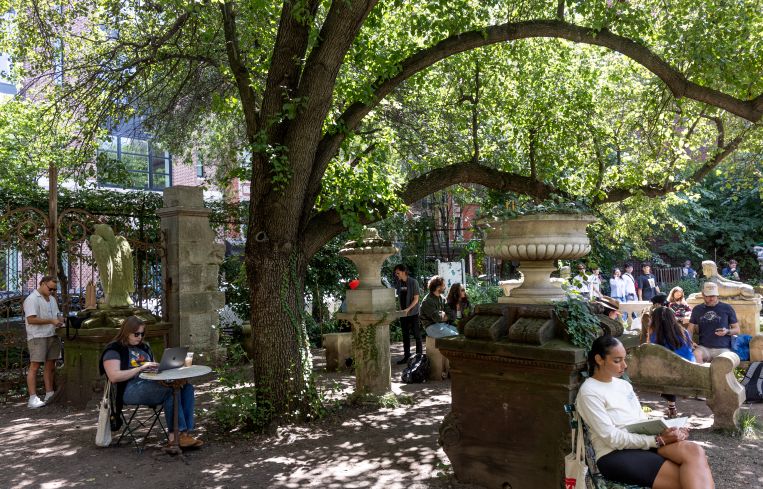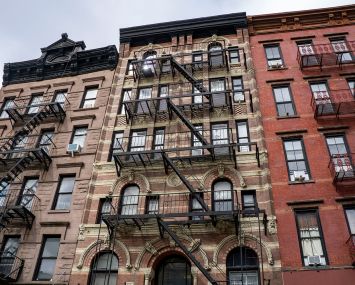In New York City’s Haven Green Flip-Flop, a Dire Warning for Affordable Housing
By Samantha Magistro July 18, 2025 7:53 am
reprints
At just over 1 acre in size, the recently suspended Haven Green project in Manhattan may not seem very impactful in a city that houses millions. But the debate over this small parcel of land may have outsize repercussions in the fight to build affordable housing in New York City.
Proponents of Haven Green intend to bring much-needed affordable housing to seniors in a neighborhood that has virtually no housing dedicated to low-income New Yorkers. After more than a decade of community-led discussions, City Council review, and successfully resolved litigation, last month the city abruptly announced that it would not move forward with the project.
Abandoning the project after years of investment sends a troubling message about the sanctity of the public-private partnership that makes affordable housing possible. It also threatens to undermine the affordable housing ecosystem at a time when we should be strengthening our partnership against the real and current threats to building and operating housing in our city.

New York City is one of the most complicated places to build in the country. To succeed, any project must overcome the limited availability of land, high costs of materials and labor, and rapidly increasing insurance rates. This is all further exacerbated by the time-consuming approvals, review processes and legal challenges that often cause delays and further drive development costs up.
This was the case with the Haven Green proposal, which endured more than 10 years of reviews and litigation before finally receiving a judgment allowing the project to proceed. Along the way, in the face of ongoing external pressures, the developers believed that, at the very least, they could rely on the commitment of city officials — until the day that they couldn’t.
In the end, after huge sums of money were spent and years wasted, the project was canceled. Aside from the needlessly squandered investment, it is the low-income seniors who desperately need an affordable place to live who are the biggest losers here.
To be clear, this isn’t about locking the city into deals that don’t align with its priorities or meet its investment criteria. It’s about recognizing one key fact: To continue advancing affordable housing production, we must address — and, to the extent possible, eradicate — business uncertainty. It’s about establishing a sense of realistic predictability that encourages responsible, long-term private investment.
Recent proposals on the federal level to cut core housing programs are putting thousands of low-income renters at risk and undermining efforts to develop housing across the country.
The ripple effects of federal funding cuts have already started spooking New York’s owners and lenders, with developers entering pauses on new project investments and some even openly saying they may have to walk away from projects if uncertainty continues.
Developers need strong, steady and predictable partners at the city level. If the affordable housing industry and communities invest years of time, planning and capital into a project, they need to trust that City Hall won’t reverse course at the very last minute based on external pressures or political motivations. Similarly, empowering well-resourced opponents to use litigation and delay tactics to suspend affordable housing projects until some future official can cancel them threatens the viability of just about any development.
New York City has a long track record of building and preserving affordable housing across multiple administrations. That progress has been built on a shared understanding that the public and private sectors need each other to deliver the results that New Yorkers need.
The city has already taken steps in the right direction. We’ve seen updated zoning rules, streamlined approvals, and other reforms that offer opportunities for developers to build. A Charter Revision Commission, convened by the mayor, has recommended many productive steps to speed the process of building affordable housing and addressing obstructionism that undermines the city’s commitment to fair housing.
But, as mayoral candidates talk about expanding housing options and fixing the affordability crisis, they must know that smart policy changes alone won’t be enough. Developers — both for profit and not for profit — need to know that if they engage, invest and plan with the city, that partnership will be honored to the finish line.
Upholding city commitments to affordable housing isn’t a luxury for New York. It’s a necessity to meet the urgency of the moment, deliver real solutions, and create a city where every New Yorker has a safe, affordable place to call home.
Samantha Magistro is the CEO of developer Bronx Pro Group and the board chair of the New York State Association for Affordable Housing (NYSAFAH).



